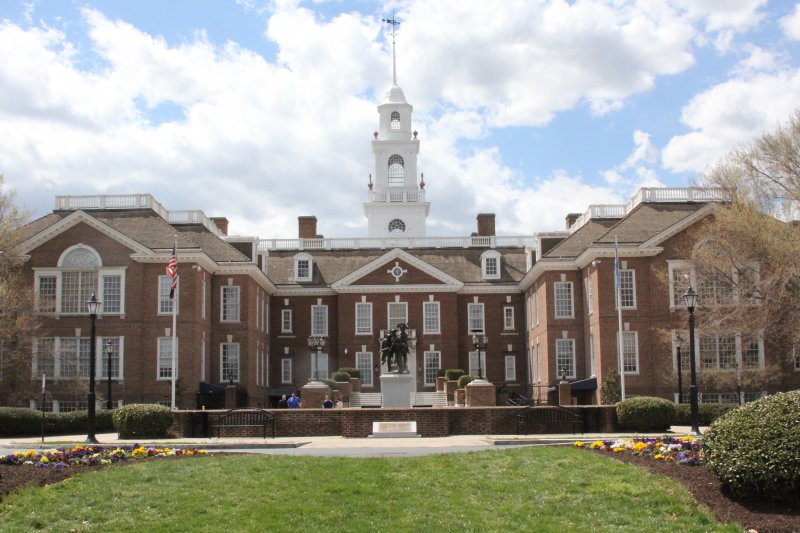Gov. Matt Meyer signed his first budget June 30, after the spending bill sailed through the General Assembly days before the close of session, giving teachers a pay raise and more than $50 million in other education-related spending.
The $6.5 billion fiscal year 2026 budget passed the House 35-5 with one vacant June 24 and the Senate June 26 by an 18-3 vote.
In a press release, Meyer said the appropriations reflect his commitment to investing in the foundation of Delaware’s future – education, public health, workforce development and equity.
Public school educators are set to receive a 2% raise as Meyer holds to a promise to bring starting teacher salaries to $60,000. Under the operating budget, the state’s share of base pay for a teacher with a bachelor’s degree and zero years’ experience is $36,760. The amount increases when the local school district share is added, and with additional years of experience and education.
Other education earmarks include $33.1 million to cover projected growth in schools; $8.4 million for mental health supports in elementary, middle and high schools; $8 million for early literacy; and $3.2 million for free breakfast.
The bill also authorizes $40 million to receive additional federal Medicaid funding, which will be used to address statewide health needs including $10 million for long-term care facilities, and includes $61.2 million in post-employment healthcare benefits for state retirees, reducing long-term liability.
Another $28 million will cover the state share of state employee and state retiree health insurance premiums to ensure existing health benefits remain intact.
“Each year, the budget-writing process presents us with new challenges. As one of the leaders of this committee, I have always strived to prioritize efficiency and effectiveness. I believe this year’s budget accomplishes these goals,” said Sen. Trey Paradee, D-Dover, co-chair of the Joint Finance Committee. “Despite the uncertainty of our state’s economic forecasts in the coming years – coupled with impending threats from the federal level – we have balanced our budget without raising income taxes. We stayed within Gov. Meyer’s budget reset growth benchmark, and we maintained the Budget Stabilization Fund at $469.2 million and the Rainy Day Fund at $365.4 million.”
The spending bill also supports the creation of the Office of the Inspector General, and a state-level Department of Veterans Affairs.
Supplemental bill
The General Assembly passed a supplemental bill adding $37,632,955 in one-time funding for various projects. The bill passed the House June 24 with 40 votes and one vacant, and unanimously passed the Senate June 26.
Big-ticket items include $2 million for ERP Cloud Migration, $3.5 million for Health Care Services Contingency, $2 million for Trauma Informed Services Contingency, and $5 million for operations.
One-time education money includes $3 million for teacher-driven projects to purchase evidence-based literacy materials for the classroom. Priority is given to schools with low literacy proficiency or those that have been designated for improvement.
School discipline will get $2 million to add seats within existing alternative school programs. Sussex County receives $500,000 to help pay for year-round services at alternative schools, for which local school districts pay 30% of the total and the state pays the rest.
For students not eligible for placement in alternative programs, $1 million goes to a pilot program for school-based intervention services for disruptive students who impede the learning process.
Melissa Steele is a staff writer covering the state Legislature, government and police. Her newspaper career spans more than 30 years and includes working for the Delaware State News, Burlington County Times, The News Journal, Dover Post and Milford Beacon before coming to the Cape Gazette in 2012. Her work has received numerous awards, most notably a Pulitzer Prize-adjudicated investigative piece, and a runner-up for the MDDC James S. Keat Freedom of Information Award.

















































